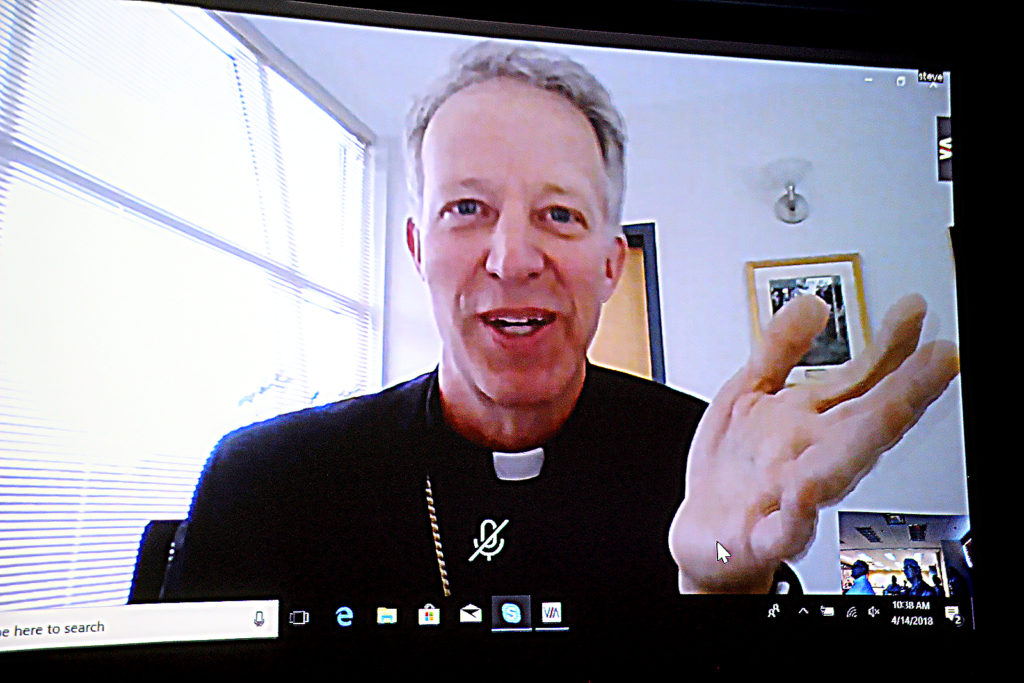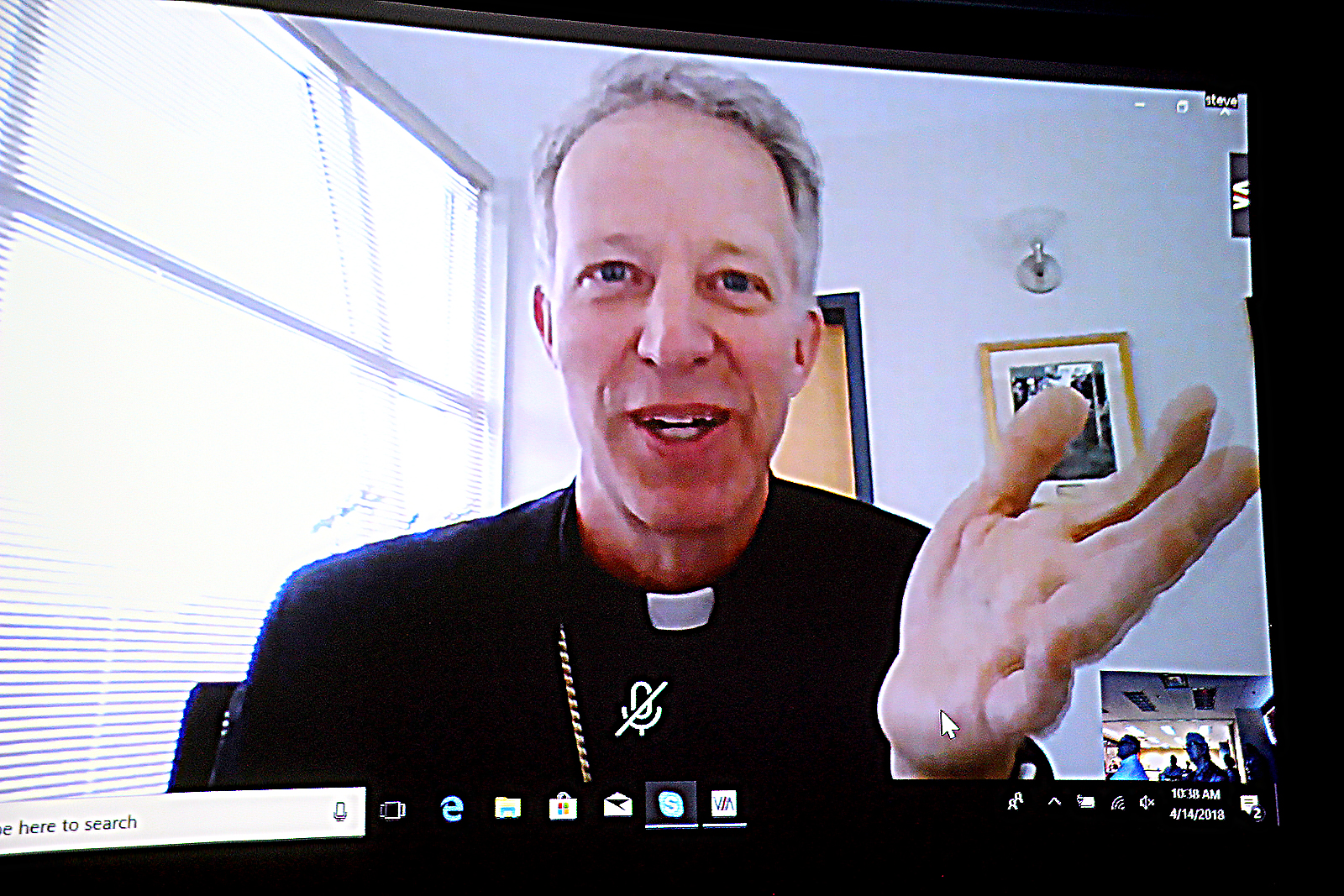
GLENDALE — The Old Testament book of Nehemiah tells the story of a layman who spearheaded the rebuilding of the Jewish temple after the nation returned to its land from 70 years of exile in Babylon. It is, according to Bishop William A. Wack, CSC, bishop of Florida’s Pensacola-Tallahassee Diocese, a robust example of the critical role the laity plays in advancing the Gospel.
“Even today, I think, when people hear ‘vocations,’ they automatically think of the religious life or the priesthood,” Bishop Wack, the onetime director of Phoenix’s André House, told the 2018 “Discipleship For Our Times” Conference of the Congregation of the Holy Cross April 14.
Bishop Wack, who spoke via video from his offices in the Sunshine State, addressed more than 200 Holy Cross Associates assembled at several locations across the country, including St. Thomas More Parish in Glendale. Other groups participated from central California, Florida and at the congregation’s United States headquarters in South Bend, Indiana. Twenty associates gathered at the Glendale church.
The bishop, who served at André House from 2003-2008 and was installed in Pensacola-Tallahassee last August, told the conference while the concept of laity doing the heavy lifting is not new, it has gained something of a rebirth since the Second Vatican Council from 1962-1965. Pointing to the Dogmatic Constitution on the Church promulgated in 1964 by Pope Pius VI, “Lumen Gentium (Light of the Nations),” Bishop Wack said the laity’s role is more than a choice.
“For centuries, Church leaders were … college presidents, hospital administrators, professors, theologians and catechists. In the last couple of generations, however, a lot of that has fallen to the laity. I’d like to think … all God’s people will realize they, too, have a great calling. It’s not just something for the professional religious, but for all of us,” Bishop Wack said.
The key, he continued, is adapting the message to present-day.
“With the constantly increasing population, continual progress in science and technology, and closer interpersonal relationships, the areas (for the lay apostolate) have been immensely widened, particularly in fields that have been for the most part open to the laity.”
Conference participants applauded the message. Associate Linda Pagel of St. Jerome Parish noted that Bishop Wack — pronounced wok — said ministry often involves simply being with people and listening to their needs and concerns.
“I liked that he said that. I have my own individual ministries, but I also have eight grandchildren. To me, that is a ministry of sorts. I minister to them by folding laundry, reading to them and making peanut butter-and-jam sandwiches, playing with the kids and going on cross-country trips with them,” she explained.
Janice Flood of St. Francis Xavier Parish said there is no shortage of needs to be filled in the churches themselves, such as serving as an extraordinary Minister of holy Communion, a lector, lay catechist, or with organizations such as André House or the Society of St. Vincent de Paul.
“If you are seeking a need, it is there to be found,” she said.
Zenaida Hernandez of Our Lady of Soledad Parish in Coachella, California, one of several participants to travel here from that state, said ministry not only benefits the one receiving, but the one giving.
“Everything helps us in our faith and keeps us growing in the love of God,” said Hernandez, a former 15-year participant in the Diocese of San Bernardino’s ministry to inmates at the California state facility near Blythe.






